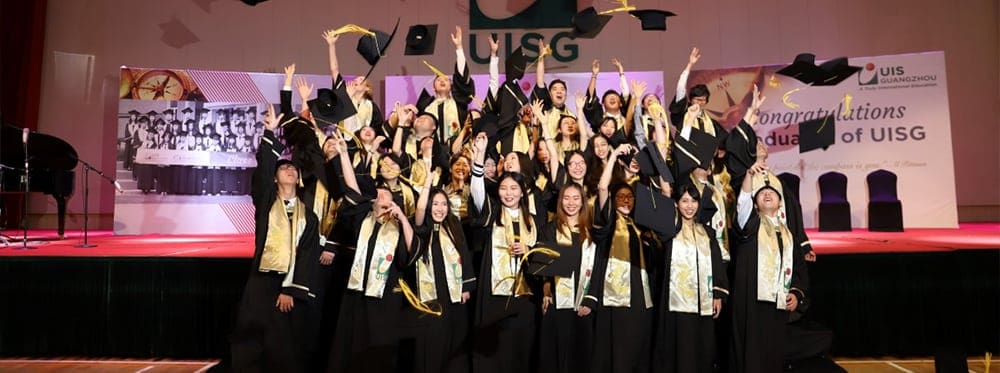As we get closer to the end of the school year, many of our students and parents are planning a summer of rest and relaxation! Remember that the summer is also a great time to explore college and career goals. Here are some tips for getting the most out of your summer holiday and fine tuning your university and career plans.
1. Plan a University Visit
There is a university campus in practically every country in the world. No matter if you plan a family holiday in a foreign place or return to your home country, arrange a university tour in each location, regardless of if it is one of your university choices. Students should see the various types of university campuses to understand and compare the different types of campuses to decide which campus environment and facilities best fit their needs.
2. Maintain Relationships
After visiting universities, send a follow up email stating your appreciation and something you learned during the visit. When questions arise about your major or application, reach out to the representative for support. University reps love to see that students are continuously engaged in the university planning process prior to submission time. Additionally, be sure to nurture your relationships with teachers, coaches, and counselors. They will be writing references on your behalf and should be able to say numerous positive character traits about you (turns in work on time, submits quality work, engages in class discussion, works well with others, etc.). Representatives know that when these traits are not mentioned, it may mean the student has difficulties it this area.
3. Volunteer and Record Your Efforts
All universities want to see that students are engaged both inside and outside of the classroom. Find a local charity to donate some of your holiday time. If possible, find someone in your chosen career field and shadow them on the job. After each activity record the name, dates, your role, and a description of the activities. These activities can later be included in your student CV and personal statement.
4. Explore Career Interests
Do you want to work in business or public service? Do you prefer to work with people or with data and computers? Do you see yourself working 8 hours a day or the overnight shift in the emergency hospital? Take some time to think about the career industry that best fits your academic, personal, and social interests. Taking career assessments can help you begin the exploration process. 123test.com offers an easy to use career assessment that can help you explore careers that are aligned with your interests and that you may not have previously considered.
5. Research Universities and their Admission Criteria
As an international school, our students literally have the world as their base for university options. Begin by decided that top countries of choice to attend university. Then research universities that have the majors or courses that will lead to your career choice. After that, narrow your choices based on the best degree program, campus environment, and cost. Be sure to have reach, target, and safety schools based on your individual academic transcript, predicted grades, and test scores. Students entering Year 11 and 12 have BridgeU accounts to assist them in the university research process. Parents of year 11 and 12 students also have access to student BridgeU accounts. A registration email was sent to parents from BridgeU earlier in the school year. Have your student complete their profiles and shortlist universities of their choice.
6. Plan for Deadlines
Based on where and when you want to apply, you may have application deadlines throughout all of Year 12. Make sure you have collected all the necessary information before starting an application. Beginning in Year 9, keep track of all of your sports, clubs, volunteer experiences and leadership roles. You will be able to use them to create a CV that will enable teachers and counselors to write a more detailed reference for you. It is also a good idea to begin writing your thoughts about why you want to study your chosen major and the career path you have planned for yourself. This can later be used in a personal statement or help you express your thoughts during university interviews. Make sure you begin taking university entrance exams such as SAT or TOEFL in Year 11 to give yourself plenty of time to take the exams twice. TOEFL exams are offered over the summer. For students entering Year 12, research application deadlines for the universities you plan to apply. A good rule of thumb is to mark your calendar at least 10 days before the application is due. This will ensure that documents needing to be mailed will reach the university on time as well as allow time to address technical issues with online submissions.
7. Discuss Your Plans with Your Parents
Always keep your parents informed of the ideas and plans you have for university. It is important to know how your parents’ feels about the country in which you want to attend university as well as the cost they have planned to invest in your education. Sometimes parent may not agree with the choices you have made, however the university counselor can assist you in finding information to support you in explaining your interests to your parents. Have the conversation as often as possible to ensure everyone is in agreement throughout the selection process.
If you have questions at any time regarding the career and university selection process, make an appointment with the University Counselor, Tiese Bright when we return next term. She will provide parent and student information sessions to support you through the process. Have a great holiday and I look forward to working with you on your journey to university!
